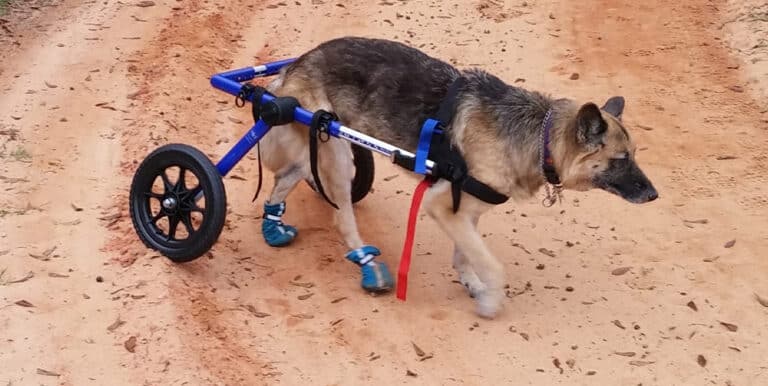What Are the Uses of Hydroxyzine for Dogs?

A dog that comes into contact with a substance that it is allergic to will experience several physiological changes. Depending on the invading allergen, these responses can include rashes, swelling, and hives. Hydroxyzine is an antihistamine medication that is able to reduce a severe inflammatory response to an allergic attack. The medicine can also be used by a veterinarian during emergency situations to sedate a agitated dog. Hydroxyzine for dogs typically suppresses the central immune system and provides mild tranquilizing effects.
When a dog is undergoing an inflammatory response on the skin due to an allergen, histamine will usually be released in the body. Histamine triggers a series of responses, including the increased permeability of the capillaries on the skin. This allows white blood cells to quickly engulf and metabolize an invading allergen, resulting in skin lesions, itchiness, and localized swelling. The hydroxyzine medication works by blocking the histamine, subsequently reducing the amount of pain that the dog will typically experience.

Hydroxyzine for dogs will usually take about 30 minutes to work. Consistent application of the medication will usually be required, as the medicine typically takes a week to take full effect. It is important that the owner does not skip on dosage times during this period. Veterinarians have noted that the medicine can help improve discomfort in about 40 percent of dogs; for optimal therapy, a combination of hydroxyzine and steroid hormones can be used to help reduce severe inflammation.
A prescription is required to obtain hydroxyzine. Hydroxyzine for dogs will typically be in pill form, with dosages usually being 1 milligram per pound (0.45 kg). The veterinarian will usually consider the dog’s body composition and diet when prescribing the right dosage. Hydroxyzine also has a mild tranquilizing effect; in emergency situations, the medicine can be delivered intravenously by a veterinarian to help sedate a distressed dog.
As with most medicines, there are some precautions that will have to be heeded when using hydroxyzine for dogs. Diarrhea, loss of appetite, vomiting, and lethargy are some symptoms connected with the medication; intravenously delivered hydroxyzine can increase these side effects. Dogs with high blood pressure, glaucoma, or otherwise compromised immune systems should stay away from hydroxyzine. Other medications that are known to suppress the central nervous system should not be used in conjunction with this medicine.






